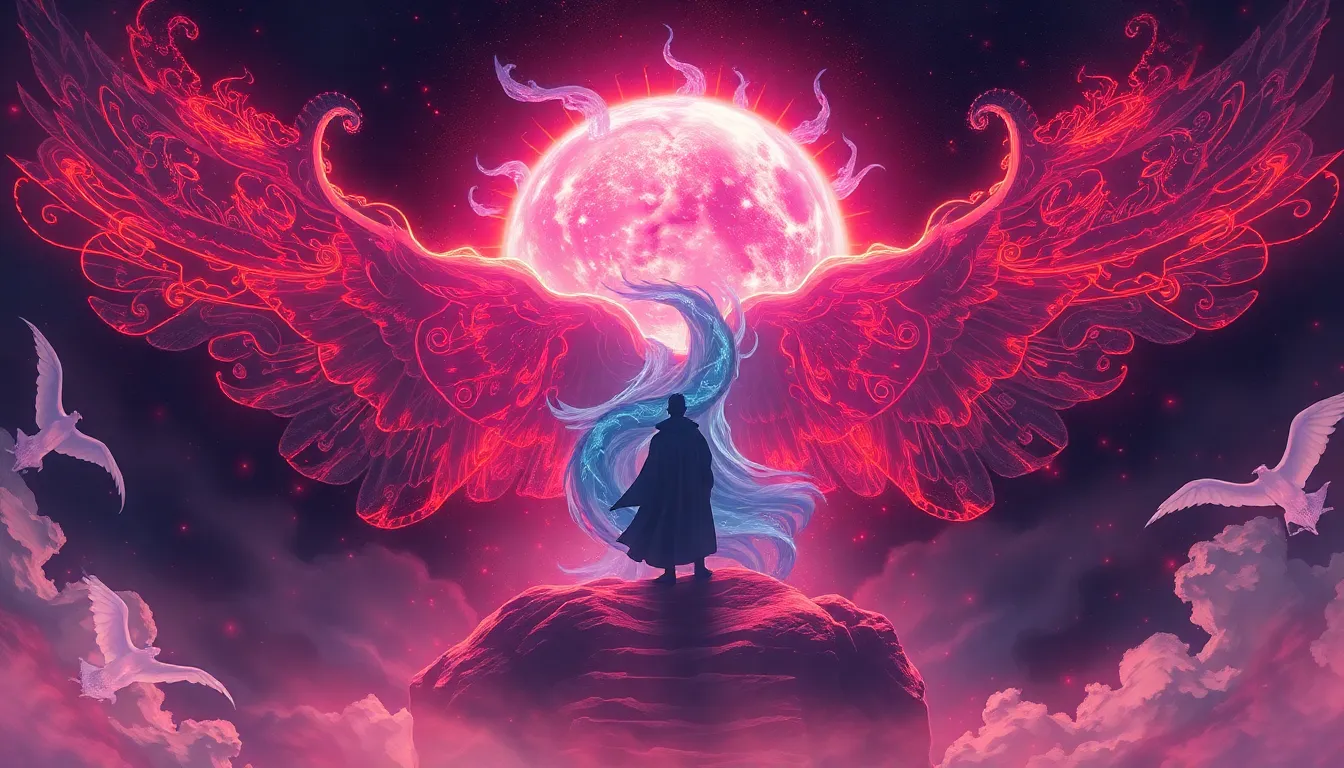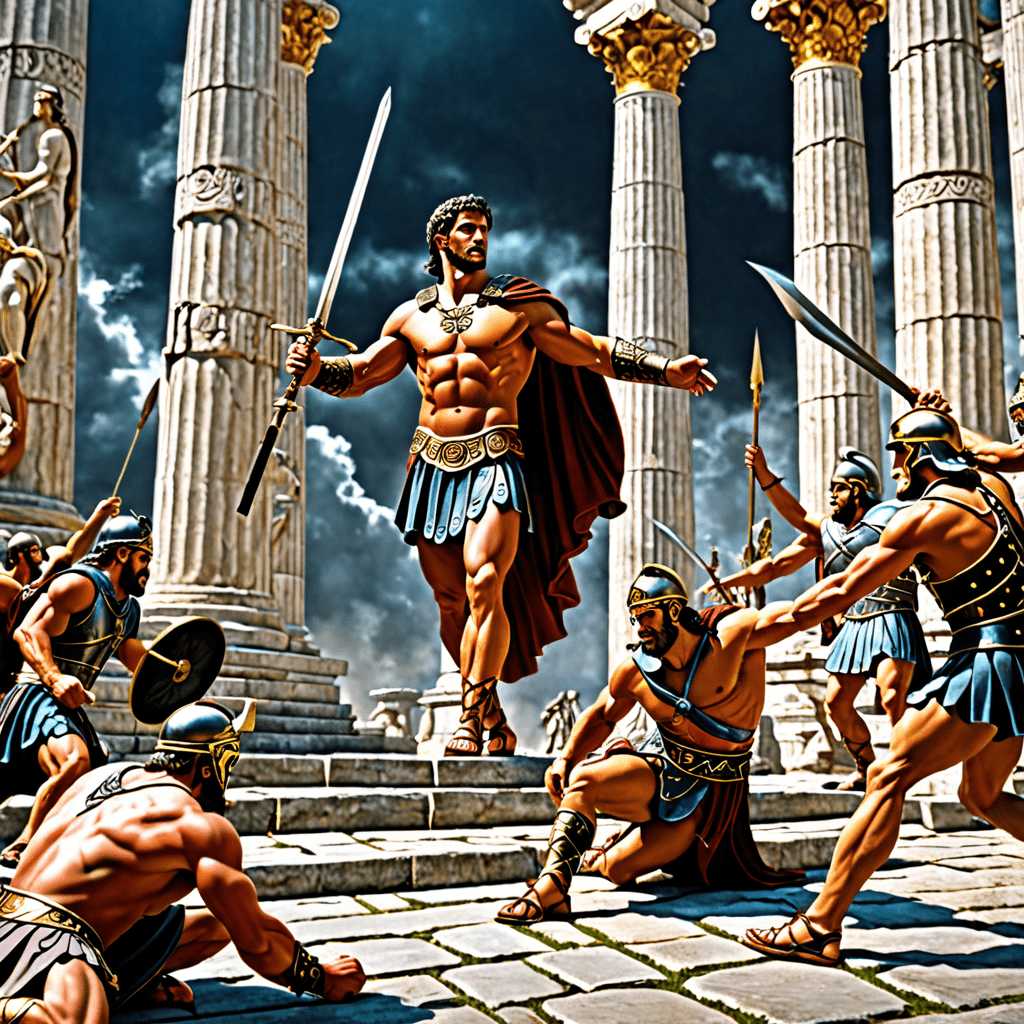The Spirit of Change: Myths That Celebrate Transformation
Introduction: Understanding the Power of Myths
Myths are more than just ancient stories; they are the fabric of human culture, woven from the threads of belief, tradition, and collective experience. They serve as a means for societies to explain the inexplicable, to understand their place in the universe, and to communicate values across generations. Central to many myths is the theme of transformation, which reflects the innate human understanding that change is a fundamental aspect of life.
The Nature of Change: Why Transformation Matters
Transformation is a powerful concept that resonates on both psychological and social levels. It signifies growth, adaptation, and resilience. In the context of myth, transformation often symbolizes the journey from ignorance to knowledge, from weakness to strength, or from chaos to order. The narratives surrounding these transformations mirror the human experience, demonstrating how individuals and societies navigate the challenges of change.
Mythical Archetypes of Change
Throughout various cultures, certain archetypes emerge that embody the spirit of change. These archetypes serve as representations of the human condition and our capacity for transformation. Some common archetypes include:
- The Hero: Often depicted as an individual who embarks on a journey, faces trials, and ultimately undergoes a significant transformation.
- The Shapeshifter: Characters who change forms often symbolize the fluidity of identity and the unpredictable nature of life.
- The Wise Old Man/Woman: This archetype provides guidance and wisdom, helping others navigate their paths of transformation.
These archetypes not only reflect individual changes but also the collective evolution of societies over time.
Cultural Myths of Transformation Across the Globe
Transformation is a recurring theme in myths from diverse cultures, each offering unique perspectives on change. For example:
- The Phoenix: In Greek mythology, the Phoenix represents rebirth and renewal, rising from its own ashes to symbolize the cyclical nature of life.
- Reincarnation in Hinduism: The belief in reincarnation reflects the continuous cycle of birth, death, and rebirth, emphasizing the idea of transformation as an ongoing process.
- Raven in Native American Mythology: The Raven often symbolizes change and transformation, acting as a creator and trickster who brings about new beginnings.
These myths share common themes of resilience and renewal, illustrating the universal nature of transformation across cultures.
The Role of Nature in Transformational Myths
Nature frequently serves as a powerful metaphor for change in mythological narratives. The changing seasons, the life cycle of plants and animals, and natural disasters all symbolize transformation. For instance:
- Spring: Often associated with rebirth and new beginnings.
- Autumn: Represents letting go and the preparation for renewal.
- Metamorphosis: The transformation of caterpillars into butterflies exemplifies profound change and the beauty of transformation.
In many myths, nature plays a central role, guiding characters through their journeys of transformation and reflecting their inner changes.
The Hero’s Journey: Transformation as a Central Theme
Joseph Campbell’s Hero’s Journey framework outlines the archetypal adventure of the hero, which is fundamentally a story of transformation. This journey typically includes stages such as:
- The Call to Adventure: The hero is invited to leave their ordinary world.
- Trials and Challenges: The hero faces obstacles that force them to grow and change.
- The Return: After undergoing transformation, the hero returns with newfound wisdom.
Examples include the tales of King Arthur, Odysseus, and modern interpretations such as the stories found in the Star Wars saga, where characters embark on transformative journeys that resonate with audiences across generations.
Modern Interpretations of Transformational Myths
Contemporary literature and media continue to reinterpret ancient myths, adapting them to reflect modern values and challenges. Films, books, and television series often draw upon mythological themes, demonstrating their relevance in today’s society. For instance:
- Superhero Narratives: Many modern superhero stories echo the Hero’s Journey, showcasing characters who undergo transformations in their identities and abilities.
- Fantasy Literature: Series like Harry Potter and The Lord of the Rings explore themes of transformation, friendship, and the battle between good and evil.
These modern interpretations highlight the enduring power of myths and their ability to inspire personal growth and societal change.
Lessons from Myths: Embracing Change in Our Lives
Transformational myths offer valuable lessons that can be applied to our lives, encouraging us to embrace change rather than resist it. Some practical takeaways include:
- Acceptance: Recognizing that change is a natural part of life can help us navigate transitions more smoothly.
- Resilience: Myths often depict characters who overcome adversity, reminding us of our own strength in the face of challenges.
- Growth Mindset: Viewing change as an opportunity for growth can transform our outlook on life’s challenges.
By applying these mythological lessons, we can foster personal and communal change, leading to more fulfilling lives.
The Future of Myths and Transformation
As society evolves, so too will our myths surrounding transformation. Future generations may create new narratives that reflect contemporary issues such as technology, climate change, and globalization. The digital age offers new mediums for storytelling, allowing myths to adapt and reach broader audiences. Additionally, the blending of cultures through globalization may lead to a rich tapestry of transformational narratives that celebrate diversity and shared human experiences.
Conclusion: Celebrating the Spirit of Change
Myths serve as powerful tools for understanding transformation, revealing the complexities of change in our lives. They remind us that while change can be daunting, it is also a source of strength and renewal. As we reflect on these stories, let us embrace the spirit of change, finding inspiration in the timeless narratives that celebrate our capacity for transformation.




